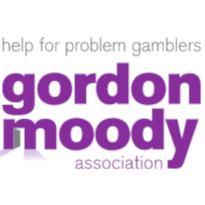Gambling Addictions – What Are They?
Gambling addictions, like any other addiction, is a brain disorder in which a person is dependant on or cannot get enough of gambling. Gambling addictions can create serious problems both for the player and the people around them. There are three known types of gambling addictions; compulsive gamblers, binge gamblers, and problem gamblers. Each experience gambling addiction differently, but all struggle to stop themselves from participating in the activity.
As mentioned, gambling addictions can harm the player and those around them, including friends and family. Some gambling addictions can also affect job performance, and it can lead to other serious health issues such as depression, anxiety, weight loss, and sleep deprivation. The reason for this is because many problem gamblers end up in financial trouble by amassing large amounts of debt from losses. Others have reportedly become homeless or bankrupt while putting their family in danger in the process.
Gambling addictions can put a strain on relationships and research suggests that the family of someone who suffers from gambling addiction are more likely to experience abuse or domestic violence.
How Do They Start?
Gambling addictions are caused by a person’s inability to control their behaviour regarding the activity. Many habits can be biological while others can be sparked by a need to chase losses or on a player’s belief. For example, someone believing that continuing to gamble will increase their chances of winning.
Scientists have also claimed that fast-paced games such as slots can actually trigger an addiction due to the chemical reaction that takes place when the slots are spun and winnings created. However, this can also apply to other casino games, particularly those that are played online.
Contrary to popular belief, stress or difficulties in a person’s life do not trigger gambling addictions. The existence of real-life and online casinos don’t trigger the addiction either; they provide gamblers with more ways to play.
Recognising A Gambling Addict
It can be difficult to spot symptoms of gambling addiction. Many people who suffer from an addiction are unaware of their disorder but the American Psychiatric Association has revealed some important symptoms players, friends, family, and loved ones should look out for to spot anyone suffering from a gambling addiction. Recognising these symptoms is essential to help anyone struggling with problem gambling. Some of the symbols reported include:
- A preoccupation for gambling
- Loss of interest in other aspects of life
- Loss of control when gambling
- Increasing wagers to cover losses
- Damaging relationships over gambling
- Lying or being secretive about gambling
- Problems at work
- Denial
Not all symptoms will apply to all problem gamblers, as many addicts may only experience a few of the listed symptoms. Generally speaking, if you feel a constant need to wager just one more time or feel anxious when you cannot gamble, it’s likely that you’re suffering from an addiction.
How To Get Better
A gambling addict can get better by seeking out help and advice from professionals in the industry. One of the most common treatments is psychotherapy in which trained professionals help addicts by correcting their problem behaviours. There are also multiple charities around the world that help people suffering from gambling problems. Gamblers Anonymous (GA) works globally to help addicts by providing them with a way to discuss their problems and offering advice. This is shown to aid in recovery.
Medication can also be used to help gamblers overcome their addiction, though it isn’t common. Some medications such as anti-depressants, anti-seizure medication and more have been used to help addicts. However, heavy reliance on medication has led to some gambling addicts turn to the drugs to get their high, with some cases ending in drug overdose. This is why most charities and services will recommend treatment centres and therapy over medication.
Lastly, friends and family can also help addicts get better by supporting them. The best thing you can do for someone struggling with a gambling problem is positively encouraging them to seek help. Being seen as judgemental and threatening will only make the problem worse, and nobody wants that.
Banks & Gambling Operators
Over the last few years many banks have begun launching new features to help customers control their gambling behaviour. Several banks such as Monzo, Barclays, and HSBC have implemented a casino or gambling block feature which, when enabled, prohibits users from making any gambling transactions with their account or card. Many of these services can be enabled instantly through smartphone apps but have a cool-off period once disabled to provide users with more time to make decisions regarding gambling behaviour.
Meanwhile, casino operators have also implemented features into online casinos which help to control gambling problems. For example, most UK online casinos will require players to enter loss limits, deposit limits, and time restrictions. When players meet these limits, a message will appear on screen to remind, and in some cases restrict, players.
Charities And Services
As mentioned, there are dozens of gambling charities and services that can help addicts recover. We’ve put together a small list of gambling services and charities you can contact if you believe you or someone you know may be suffering from problematic gambling behaviour.

National Gambling Helpline/GamCare
Website: www.gamcare.co.uk
Telephone: 0808 8020 133

Gordon Moody Association
Website: www.gordonmoody.org.uk
Telephone: 01384 241 292

Gambling Therapy
Website: www.gamblingtherapy.org

Gamblers Anonymous
Website: www.gamblersanonymous.org.uk
Telephone: 0330 094 0322
Our Tips On Staying Safe And Having Fun
There’s a lot of negativity surrounding gambling and addictions but the activity can still be fun as long as you as regulate yourself. If you’re new to gambling and are worried that you may develop an addiction to the hobby, here are several tips which can prevent it from happening but won’t stop you from having fun:
#1 – Online Gambling is Entertainment
You have to remember that gambling exists purely to entertain you. It’s not a way to make money and, if you approach games with that mindset, you’re more likely to lose money. It’s fun, and yes, there is a chance that you hit the jackpot, but the likelihood is rather slim. So whether you’re playing Playson’s exciting Roulette With Track game or Play’n GO and Microgaming’s video slots, remind yourself that this is only for entertainment.
#2 Regulate Your Spending
It’s essential that you should only gamble with money you can afford to lose. Gambling should never land you in financial trouble so make sure you never borrow money to gamble and don’t spend money you might require later on, such as your budget for rent or utilities. Doing so could be the difference between having food on the table and a shelter over your head or not. What’s more, it’s important to avoid chasing loses by gambling more or increasing wagers – never do this. Accept your loss and move on.
#3 Create And Know Your Limits
This is incredibly important. Anyone gambling online should know their limits. We recommend you set yourself a limit on how much you can afford to lose and when it’s gone, stop immediately. It will prevent you from developing an addiction and can even make the night more thrilling. It’s also worth setting a time limit, e.g., only gamble for two hours per week or similar. Most online casinos allow you to implement these options, helping you better regulate your time and spending.
#4 Take Regular Breaks
You should take regular breaks when gambling as playing for long periods of time can be dangerous. Grab a snack in the kitchen, walk around the block, or chat with your loved ones instead of staying glued to the front of the screen. And while you’re at it, why not try and take breaks lasting a few weeks or longer? Taking breaks is particularly important if you find yourself feeling stressed, depressed or angry. When this happens, the activity will no longer be fun for you and may lead to dangerous implications.
#5 Don’t Hide Your Gambling
We’re not telling you to shout it from the rooftops, but be open about your gambling activity with loved ones and trusted friends. If you start hiding your gambling activity from friends, there is a high chance you’ve crossed the border into problematic behaviour. Talking to people can help prevent that and, should you ever develop problems, your friends and family may have an easier time spotting any changes in your behaviour.





